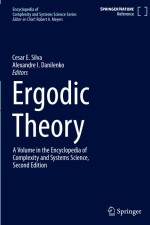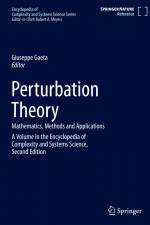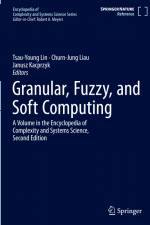av Alexandre I. Danilenko
3 581
This volume in the Encyclopedia of Complexity and Systems Science, Second Edition, covers recent developments in classical areas of ergodic theory, including the asymptotic properties of measurable dynamical systems, spectral theory, entropy, ergodic theorems, joinings, isomorphism theory, recurrence, nonsingular systems. It enlightens connections of ergodic theory with symbolic dynamics, topological dynamics, smooth dynamics, combinatorics, number theory, pressure and equilibrium states, fractal geometry, chaos. In addition, the new edition includes dynamical systems of probabilistic origin, ergodic aspects of Sarnak's conjecture, translation flows on translation surfaces, complexity and classification of measurable systems, operator approach to asymptotic properties, interplay with operator algebras




